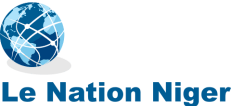By Eratus Ndueh
The fever ahead of the 2025 presidential elections is already around the corner. Opposition parties are reportedly facing difficulties in freely mobilizing their comrades due to strict administrative interference. The mobilization to create coalitions against the ruling CPDM is already promising to be a tight attempt for the powerless Cameroonian opposition blocs.
Cameroon is yet to learn from the political matureness of other African countries like Senegal. The country’s constitutional council showed independence by reversing a presidential decision to hang onto power until December. The election on Sunday, March 24, 2024, of Faye, an opposition figure, far from being a frontline, is an indication that when the people decide, the institutions allow such decisions to cross the political lines.
The situation in Cameroon is different, President Paul Biya has been in power for more than four decades, and is not showing signs of leaving the precious piston even at 91. Recently, Territorial and
Administrative Minister, Paul Atanga Nji, described the political Alliance for Change (APC), led by Jean-Michel Nintcheu, and the Political Alliance for Transition (APT), led by Olivier Bile, as ‘illegal’, calling them ‘clandestine movements.’
The Minister also mentioned that a recent meeting held in a prison in Yaoundé between Jean-Michel Nintcheu and Sisiku Julius Ayuk Tabe, a leader of the English-speaking separatist group Interim Government of Ambazonia, accounted for the decision to ban the coalition.
These threats against the opposition political parties have caused international bodies like the NGO Human Rights Watch to accuse the Cameroonian government of attempting to muzzle the opposition before the legislative, municipal, and presidential elections of 2025.
‘The action taken by the government against these coalitions shows how Cameroonian authorities are acting to close space for opposition and public debate in the run-up to the 2025 presidential elections,’ stated Carine Kaneza Nantulya, Deputy
Director of the Africa division at Human Rights Watch.
Highlighting the importance of allowing opposition parties to operate freely in a country that promotes democracy like Cameroon, the Deputy Director of the HRW called on the Cameroonian authority ‘to immediately lift the ban and allow opposition parties to continue working without harassment.’
On September 22, 2020, Cameroonian security forces reportedly fired tear gas used water cannons, and arrested more than 550 people, mainly members and supporters of opposition parties, to disperse peaceful protests across the country. Many peaceful protesters were beaten and maltreated during their arrest and detention.
President Paul Biya has been in power since 1982 and was recently re-elected in 2018 after a disputed vote-counting process. Maurice Kamto questioned the official results and declared himself the winner of the election.
The election of Paul Biya in 2018 however, triggered a wave of political suppression. After the 2018 vote, opposition-led protes
ts took place across the country, and the government responded with harsh repression and the use of excessive force by the police, army, and gendarmerie.
At the launch of the Political Alliance for Change in December 2023, Maurice Kamto indicated that the opposition should rally behind a single candidate for the next presidential elections, scheduled for 2025. Paul Biya has not announced whether he will run for another term but his militants are still soliciting him for his ability and mastery of the country’s affairs to lead them for another 7-year mandate.
Source: Cameroon News Agency
